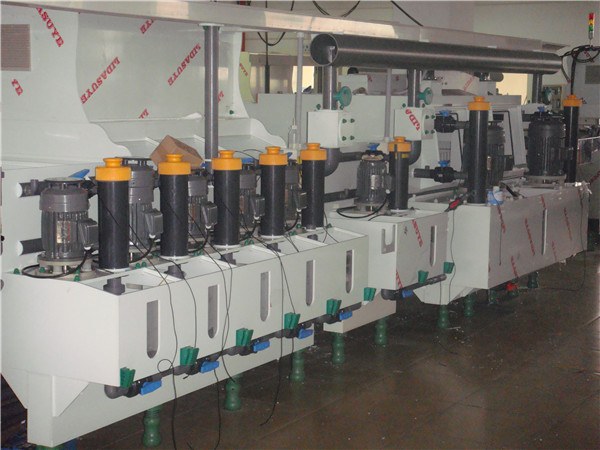Aug . 20, 2024 22:59 Back to list
Exploring the Properties and Applications of Rigid PP Sheets in Modern Industries
Understanding PP Rigid Sheets Versatile Solutions for Various Applications
Polypropylene (PP) rigid sheets are a remarkable material widely used in various industries due to their unique properties and advantages. As a thermoplastic polymer, polypropylene is known for its durability, chemical resistance, and lightweight characteristics, making it an ideal choice for applications ranging from packaging to automotive components.
Composition and Properties
PP rigid sheets are manufactured from polypropylene resin, which is processed into thin, flat sheets through methods such as extrusion and thermoforming. One of the defining features of PP sheets is their rigid structure, which provides excellent dimensional stability and rigidity compared to other plastic materials. They are available in various thicknesses and sizes, catering to specific requirements for different applications.
The fundamental properties of PP rigid sheets include high tensile strength, resistance to UV radiation, and excellent chemical stability. These characteristics enable PP sheets to withstand harsh environmental conditions, making them suitable for both indoor and outdoor use. Additionally, they exhibit good impact resistance, which adds to their functionality in protective applications.
Applications
PP rigid sheets are incredibly versatile and find use in a broad spectrum of industries. In the packaging sector, for instance, they are utilized for producing boxes, containers, and trays. Their lightweight nature reduces shipping costs while providing sturdiness to protect the contents. Furthermore, their ability to be easily printed on allows for customization, enhancing branding efforts for businesses.
pp rigid sheet

In the automotive industry, PP rigid sheets are employed in the manufacturing of interior and exterior components such as dashboards, door panels, and bumpers. Their ability to be molded into complex shapes, combined with their resistance to chemicals and heat, makes them an excellent choice for automotive applications.
The signage industry also benefits significantly from PP rigid sheets. Their weather-resistant properties make them suitable for outdoor signs and displays, ensuring longevity and maintenance-free performance. Moreover, the sheets can be easily cut, shaped, and printed on, allowing for creative designs that grab attention.
Environmental Considerations
As sustainability becomes increasingly important, the recyclability of PP rigid sheets is a significant advantage. Polypropylene can be recycled multiple times without loss of quality, reducing waste and promoting environmental responsibility. This feature resonates well with consumers and industries valuing eco-friendly practices.
Conclusion
In summary, PP rigid sheets are an indispensable material across various sectors, thanks to their robust properties and versatility. From packaging to automotive parts and signage, their applications are diverse and continue to expand. As innovation drives the development of new processing techniques and formulations, the future looks promising for PP rigid sheets, offering solutions that meet both performance expectations and environmental considerations. Their ability to seamlessly adapt to different needs signifies the importance of polypropylene in modern manufacturing and design. As industries increasingly turn to sustainable materials, PP rigid sheets will likely play a pivotal role in shaping the future of products and packaging.
-
High-Quality PPR Pipes and Fittings Durable ERA PPR & PVC PPR Solutions
NewsJul.08,2025
-
Black HDPE Cutting Board - Durable, Non-Porous & Food Safe HDPE Plastic Cutting Board
NewsJul.08,2025
-
High-Quality CPVC Panel Durable HDPE & PVC Panels Supplier
NewsJul.08,2025
-
Double PE Welding Rod Supplier - High Strength, Durable & Versatile Welding Solutions
NewsJul.07,2025
-
High-Quality PVC-O Pipe Supplier Durable 75mm PVC Pipe & Connections Leading PVC Pipe Company
NewsJul.07,2025
-
HDPE Drainage Pipe Supplier – Durable & Corrosion-Resistant Solutions
NewsJul.06,2025

